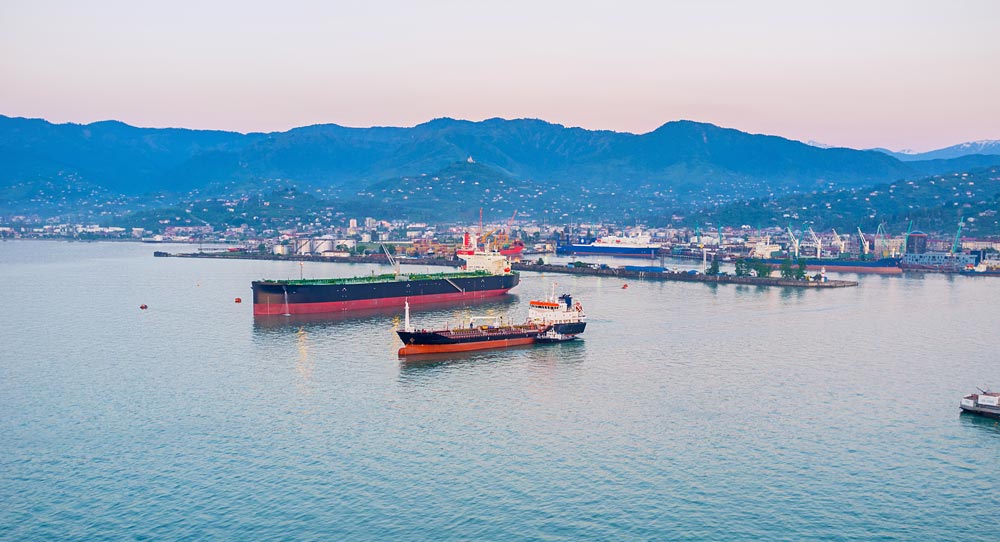Carnegie Europe is on the ground at the 2019 Munich Security Conference, offering readers exclusive access to the debates as they unfold and providing insights on today’s immense threats to international peace and stability.
***
The South Caucasus remains one of the most perplexing regions of Europe. The countries of the area—Georgia, Armenia, and Azerbaijan—are often isolated by culture and history, while at the same time being fated by geography to be a Eurasian fulcrum. Since 1990, they have been frozen in conflict with each other or paralyzed by threats from neighbors, especially Russia—and very often, both.
Three decades of international diplomacy have not offered much help. Neither NATO nor the EU has found the right message for the area. Conventional conflict prevention or peace proposals have so far come up short. Russian meddling, worsened by internal political conflict, has scrambled things even more. Traditional crisis management is no longer relevant.
Luckily, there is more good news than bad. As Thomas de Waal so cogently demonstrated recently in Strategic Europe, Georgia, Armenia, and Azerbaijan are steadily adopting practical strategies for defining their own interests and independent futures.
As de Waal put it: “Journalists should stop calling these countries ‘Russia’s neighborhood,’ let alone its backyard. The South Caucasus is a region of its own. If it is a neighborhood, it is simultaneously many at once.”
And there’s more. The nations are succeeding—each in its own way—with new, “localized” strategies that build on their individual strengths. Much remains to be done, but new developments are important enough to warrant a fresh look.
Georgia, for example, has spent the last six years emerging from the legacy of dictatorship and corruption, which characterized the first decades of its return to independence. Some of the details are still debated, but the curve toward a modern civil society has clearly been upward.
Encouraged by strong Western support, Georgia has focused on its geostrategic advantages to transform itself into a “leap region”—a regulatory and infrastructural bridge leaping across Europe and Asia. The goal is to make Georgia a modern hub for both continents.
“Localization” is the catchword for Georgia’s twenty-first century vision. In essence, this means applying local advantages of government, geography, and infrastructure to build links and ultimately leverage larger geopolitical opportunities.
In particular, the new deep-sea port at Anaklia forms the core of Georgia’s version of localization. This is important.
The growth of global digital networks has transferred the locus of transport and production from a normative standard-setting approach to practical, localized strategies. Logistical networks and global value chains can be woven into functioning networks, which operate independently of classic diplomatic efforts. What it also means is that the normative approach of the EU’s Eastern Neighborhood strategy will steadily be offset by pragmatic leap regions tied together by civil society and global value chains. In both the Caucasus and the Western Balkans, infrastructure and logistics will supplant normative goals such as EU membership as pathways to peaceful cooperation.
Located at the crossroads of geopolitically significant trans-Eurasian trade corridors, Georgia is realizing its geopolitical potential by combining infrastructure developments such as Anaklia with growing regional supply chains. Georgia will be able to access to markets encompassing 70 percent of the world’s population and 70 percent of the world’s GDP.
The EU has supported these steps with plans to extend the Trans-European Network for Transport to the six Eastern partnership countries (Armenia, Azerbaijan, Belarus, Georgia, Moldova, and Ukraine), with the goal of completing regulatory alignment by 2023. The practical and geopolitical implications of these steps cannot be underestimated.
To localize this global potential, Georgia has partnered with Azerbaijan and Turkey in the development of the Baku–Tbilisi-Kars (BTK) railway network, which—in conjunction with Kazakstan’s Khorgos dry port—shortens the voyage from Europe to China to fifteen days; that’s twice as fast as shipping.
Georgia’s coastline on the Black Sea is the only route from Europe to China that doesn’t run through Russia. That is significant for Ukraine, which in 2015 overtook the United States to become the biggest exporter of corn to China that year and is also the eighth producer of soybeans in the world.
Of equal significance is the need of major European food exporters to reach the Central Asian hinterland, China, and the Middle East.
The Middle Corridor from Georgia to China will thus be market driven by market players, including Russia, who are motivated to modernize regulation and infrastructure to reduce transport costs.
But none of this would have been possible if Georgia had not replaced authoritarian rule through a free election in 2012.
Georgia’s emerging democratic system has enabled it to build practical cooperation with both NATO and the EU. As such, it is not only providing an example of successful European engagement in modern economic and logistic sectors in a part of Eurasia. It has also helped demonstrate how sovereignty and regional cooperation can thrive, even in the shadow of larger neighbors.
In other words, the significant new infrastructure investments in Georgia and the networks that make them possible will not only make the country a logistics hub for Europe. It will also make Georgia a partner in the localization of a qualitatively different corporate culture and a purveyor of Western standards and ideals. Best of all, this extension of Western principles is taking place in a cooperative environment, in which all parties, including Russia and China, understand the strategic importance of these arrangements for their own futures.
Tedo Japaridze is the vice chairman of international relations at Anaklia Development Consortium in Tbilisi. John C. Kornblum is a senior counsellor at Noerr LLP in Berlin.






